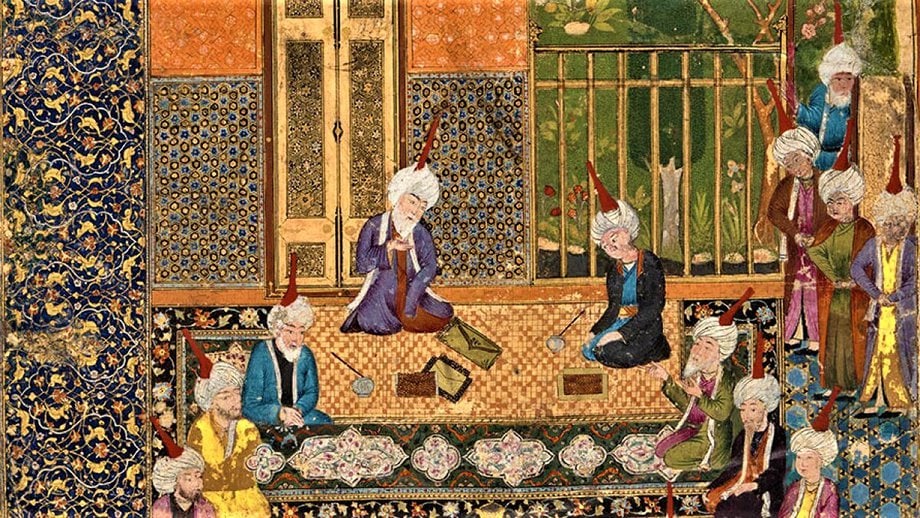Sufi Meditation Vs. Other Mystical Traditions: a Comparative Overview

Are you curious about the differences between Sufi meditation and other mystical traditions? In this article, we will provide you with a comparative overview of these practices.
We will explore the historical origins, core beliefs, methods of meditation, and spiritual goals of Sufi meditation, as well as its influence on contemporary society.
By the end, you’ll have a deeper understanding of how Sufi meditation sets itself apart from other mystical traditions.
So, let’s dive in!
Key Takeaways
- Sufi meditation has had cooperative and competitive relations with other mystical traditions, shaping its development.
- Sufi meditation utilizes poetry and music to create a transformative experience and connect with the divine.
- Sufi meditation employs various methods such as dhikr, whirling, poetry recitation, breath control, and visualization.
- Consistent dedication to Sufi meditation leads to spiritual growth, reduced stress, increased self-awareness, and improved focus and concentration.
Historical Origins and Development
You’ll find that the historical origins and development of Sufi meditation differ from those of other mystical traditions.
Sufi meditation has had a significant influence on Islamic art throughout history. The practice of Sufi meditation, with its emphasis on inner contemplation and spiritual connection, has inspired numerous artistic expressions in calligraphy, architecture, and music.
The intricate geometric patterns seen in Islamic art often represent the harmony and unity sought through Sufi meditation.
Additionally, Sufi meditation has had both cooperative and competitive relations with other mystical traditions. While there have been instances of mutual influence and exchange, there have also been conflicts and disagreements between Sufis and practitioners of other mystical traditions.
These dynamics have shaped the development and evolution of Sufi meditation, making it a unique and distinct tradition within the broader mystical landscape.
Core Beliefs and Practices
When exploring core beliefs and practices, it’s important to delve into the various aspects of these mystical traditions.
In Sufi meditation, poetry plays a significant role. Sufi poets express their devotion and longing for the divine through their verses, which are often filled with symbolism and metaphors. These poems serve as a means to connect with the spiritual realm and deepen one’s understanding of the divine.
Additionally, music holds a special place in Sufi meditation. It is believed that music has the power to transport the soul closer to God. Sufi practitioners use music, such as the mesmerizing sounds of the flute or the rhythmic beats of the drum, to enter a state of trance and experience a profound connection with the divine.
The combination of Sufi poetry and music creates a unique and transformative experience in Sufi meditation.
Methods of Meditation and Contemplation
Music and poetry play integral roles in Sufi meditation, allowing you to enter a state of trance and deepen your connection with the divine. Through various meditation techniques, Sufis seek to attain spiritual enlightenment and union with God. Here are some key aspects of Sufi meditation:
- Dhikr: Repetition of sacred phrases or names of God to focus the mind and achieve spiritual elevation.
- Whirling: A form of active meditation where practitioners spin in circles, aiming to detach from the physical world and connect with the spiritual realm.
- Poetry recitation: Chanting or reciting mystical poetry to invoke deep emotions and contemplation.
- Breath control: Focusing on the breath to enhance mindfulness and still the mind.
- Visualization: Using the power of imagination to create vivid mental images and connect with spiritual realities.
The benefits of these contemplation practices include increased self-awareness, a sense of inner peace, and a deeper understanding of the divine nature. By engaging in Sufi meditation, you can embark on a transformative journey towards spiritual awakening and divine love.
Spiritual Goals and Paths to Enlightenment
To achieve spiritual enlightenment and union with the divine, your spiritual goals can be pursued through various paths and practices.
One of the most effective ways to embark on this journey is through meditation. There are different meditation techniques that can be explored, each offering unique benefits for your spiritual growth. Whether you choose to practice mindfulness meditation, loving-kindness meditation, or transcendental meditation, the key is to find a technique that resonates with you.
By consistently dedicating time to your spiritual practice, you can experience a multitude of benefits. Regular meditation can help reduce stress, increase self-awareness, improve focus and concentration, and cultivate a sense of inner peace and tranquility.
As you delve deeper into your spiritual journey, remember that the path to enlightenment is a personal one, and it is important to choose a practice that aligns with your beliefs and values.
Influence and Impact on Contemporary Society
If you delve into the influence and impact of spiritual practices on contemporary society, you’ll discover a wide range of beliefs and practices that have shaped and transformed the way people approach their spirituality.
Sufi meditation, in particular, has gained attention for its potential benefits for mental health in today’s society. One key aspect is the role of technology in modern Sufi meditation practices. With the advent of smartphones and meditation apps, individuals can easily access guided Sufi meditations and incorporate them into their daily routines. This accessibility allows more people to experience the calming and centering effects of Sufi meditation, promoting overall mental well-being.
Moreover, Sufi meditation emphasizes mindfulness and self-reflection, providing individuals with tools to cope with stress and anxiety in their daily lives. Sufi meditation’s integration into contemporary society has undoubtedly made a positive impact on people’s mental health and well-being.
Frequently Asked Questions
How Does Sufi Meditation Compare to Other Forms of Meditation in Terms of Physical Health Benefits?
Sufi meditation, compared to other forms of meditation, offers unique physical health benefits. By focusing on breath control, movement, and mindfulness, Sufi meditation enhances your overall well-being and promotes a healthier body.
What Role Does Music Play in Sufi Meditation Compared to Other Mystical Traditions?
Music plays a significant role in Sufi meditation, as it incorporates chanting and dance. Compared to other mystical traditions, the use of music in Sufi meditation enhances the spiritual experience and deepens the connection with the divine.
Are There Any Specific Dietary Guidelines or Rituals Associated With Sufi Meditation That Differ From Other Mystical Traditions?
There are specific dietary guidelines and rituals associated with Sufi meditation that differ from other mystical traditions. These guidelines and rituals help maintain a balanced physical and spiritual state during the practice.
How Does Sufi Meditation Differ From Mindfulness Meditation in Terms of Its Focus and Objectives?
Sufi meditation differs from mindfulness meditation in terms of its focus and objectives. While mindfulness aims for present moment awareness, Sufi meditation emphasizes spiritual connection and the attainment of inner knowledge.
Are There Any Specific Rituals or Ceremonies Associated With Sufi Meditation That Are Not Found in Other Mystical Traditions?
In other mystical traditions, there may be specific rituals or ceremonies associated with meditation. Sufi meditation, in particular, also incorporates unique practices that are not found in other traditions.








